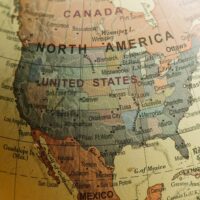The developmental stress and transition that comes with the various stages of adolescence and young adulthood can be a confusing and difficult process for anyone navigating the trials and tribulations that accompany it. For DACA students, this journey to finding yourself and establishing personal goals intensifies greatly in magnitude as they face unique cultural barriers that may infringe on those developmental processes all together.
Many may wonder what exactly is DACA and how it affects those as they grow from children to adults. In its simplest definition, Deferred Action for Childhood Arrivals (DACA), is an immigration policy designed to protect those who came to the United States as children from deportation and grants them a work visa as well as the ability to renew this deferral every two years. While this policy greatly helps an underrepresented community, it also can have certain direct and indirect barriers on the cultural and identity-related experience of DACA students as the program does not exactly grant citizenship status.
Because of the taboos and negativity surrounded around immigration in the United States, DACA students feel a sense of isolation and experience discrimination as well as profiling at a higher rate than their U.S. citizen counterparts. They are told that they are taking jobs from American people, when that is far from the case and are told they are betraying their community if they appear to assimilate in terms of appearance, behavior, language, etc. It seems as though to the average DACA student, they have to succumb to both societal and cultural norms between two worlds simultaneously. This brings up questions such as How can I embrace my culture without being chastised for it? How can I enjoy American culture and grow without feeling like I am leaving one culture for another? While there is no clear-cut answer to these questions, there is an important thing to remember and that is the sense of community and support.
Community and support are imperative in terms of DACA students to be able to relate with others about cultural and identity struggle as well as have a safe space to uplift one another and build cultural confidence. This does not have to be limited to one specific activity or club, although those do exist in universities, for younger DACA recipients this can mean joining after school activities or reaching out within a living community to those who also share cultural traits such as eating the same food, speaking the same language, and celebrating culture specific holidays together. It not only boosts mental health and reduces disparities experienced by the DACA community, but can also provide them with multiple resources that can lead them towards a path of citizenship as well as grow their own personal development.
Being a DACA recipient or an immigrant does not present inferiority by any means. It does not mean that one cultural identity has to be sacrificed for another, nor does it mean that we have to refrain from celebrating the beautiful aspects of our cultures. What it does prove, however, is resilience, power, and beauty that is represented through each and every culture and that is something that is very worthy of being celebrated each and every day.








